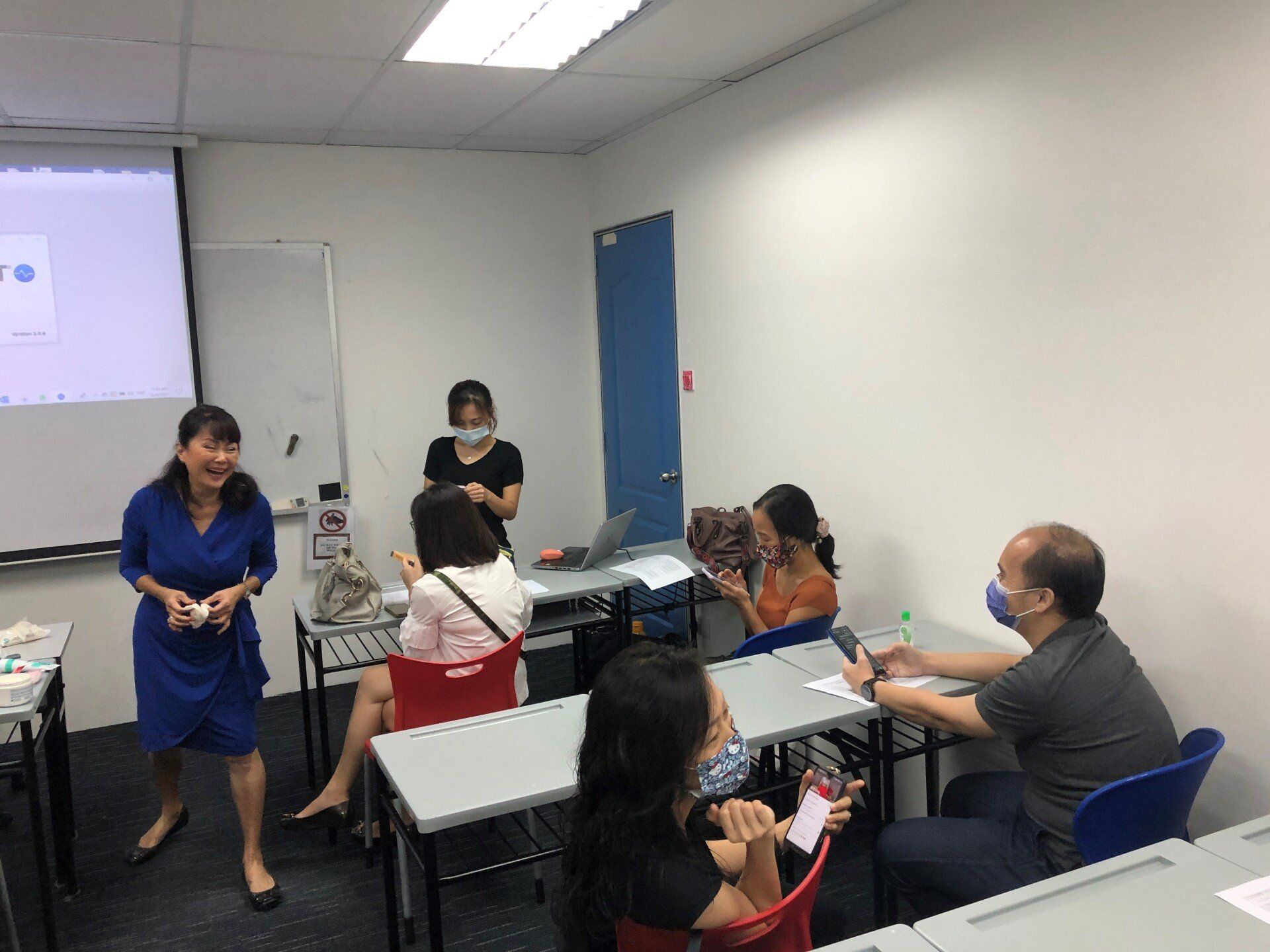LINGGUO SYNAPZ
Neurofeedback Therapy
How does Neurofeedback help Children with ADHD?

How Does Neurofeedback help Treat Children with ADHD?
Results of Neurofeedback in Treatment of Children with ADHD: A Systematic Review of Randomized Controlled Trials.
Traditional treatments for ADHD, such as medication and behavioral therapy, have been effective for many children, but some parents are turning to alternative treatments such as neurofeedback therapy.
You might be wondering if neurofeedback therapy is suitable for your child. If this is you, I hope you will read to the end of this blog for the promising results.
What is ADHD?
Attention-deficit/hyperactivity disorder (ADHD) is a common neurodevelopmental disorder that affects about 5-10% of school-aged children. The symptoms of ADHD, such as impulsivity, hyperactivity, and inattention, can have a significant impact on a child's academic and social functioning.
What is Neurofeedback Therapy?
Neurofeedback therapy is a form of biofeedback that uses real-time electroencephalography (EEG) or functional magnetic resonance imaging (fMRI) to help individuals regulate their brainwave activity. It is a non-invasive and gentle therapy.
The goal of neurofeedback therapy is to help the child learn to regulate their brain activity on their own, without the need for external feedback.
During neurofeedback sessions, the child has gel-attached electrodes gently placed on their scalp and that link them to a computer to monitor their brain activity. The child then watches the computer screen with a programme that catches their attention, for eg, a video. Through looking at the screen, they receive visual or auditory feedback that is meant to help them modify their brainwave patterns.
The treatment is generally 20-30 mins in duration.
Discussion of Randomized Controlled Trials on Effectiveness of Neurofeedback Therapy on ADHD Children
Journal Ref: I. Moreno-Garcia, A. Cano-Crespo & F. Rivera. (2022). Results of Neurofeedback in treatment of children with ADHD: A systematic review of randomized controlled trials. Applied Psychophysiology and Biofeedback, 47, 145-181.
The review in included studies published between 1990 and 2020 and included a total of 19 studies with a total of 807 participants. The results of the review showed that neurofeedback therapy was effective in improving symptoms of ADHD in children. The studies included in the review used a variety of neurofeedback protocols, such as theta/beta ratio, sensory-motor rhythm (SMR), and slow cortical potential (SCP) protocols. Despite the different protocols used, the studies consistently showed that neurofeedback therapy was associated with significant improvements in ADHD symptoms.
Specifically, the review found that neurofeedback therapy was associated with improvements in attention, hyperactivity, and impulsivity. The improvements in ADHD symptoms were similar to those seen with traditional treatments, such as medication and behavioral therapy. Furthermore, the benefits of neurofeedback therapy were found to persist for up to 6 months after treatment.
It is important to note that the studies included in the review had some limitations. For example, many of the studies had small sample sizes, and some did not have control groups. Additionally, there was variability in the neurofeedback protocols used across studies, which makes it difficult to draw firm conclusions about the most effective protocol.
In conclusion, the results of this systematic review suggest that neurofeedback therapy is a promising alternative treatment for children with ADHD. While more research is needed to determine the most effective protocol for neurofeedback therapy, the studies included in this review provide evidence that this form of therapy can be an effective option for children with ADHD who are seeking non-pharmacological treatment options.
If you are considering neurofeedback therapy for your child, it is important to talk to your healthcare provider to determine if this form of therapy is appropriate for your child's individual needs.
Photo source: "Kids with ADHD take more time to be school-ready. en.banglatribune.com
Journal Ref: I. Moreno-Garcia, A. Cano-Crespo & F. Rivera. (2022). Results of Neurofeedback in treatment of children with ADHD: A systematic review of randomized controlled trials. Applied Psychophysiology and Biofeedback, 47, 145-181.
Neurofeedback Blog

Lingguo Synapz
Phone: 91069556
Email: lingguosynapz@gmail.com
#02-33, KAP Mall
9 King Albert Park
Singapore 598332